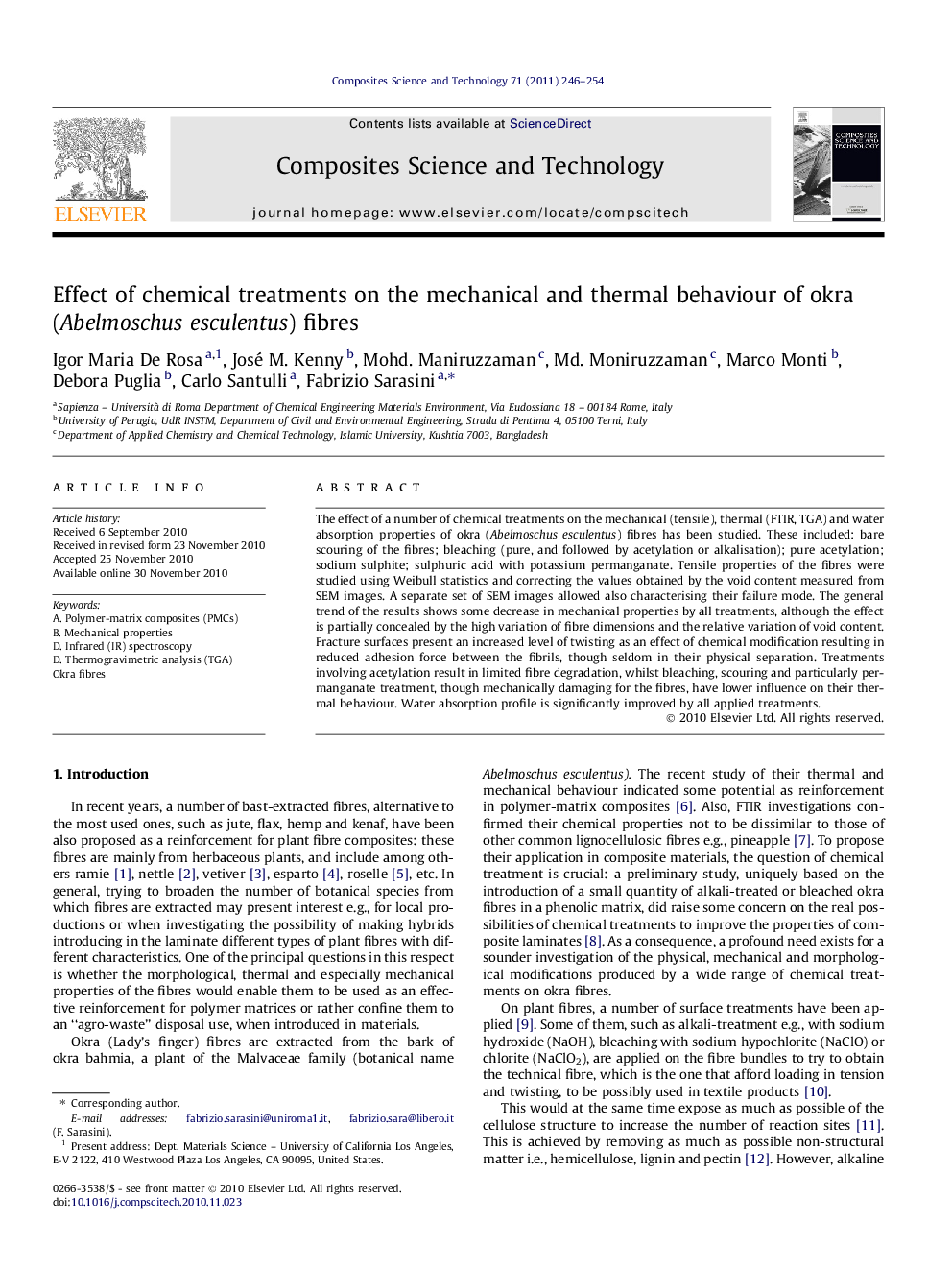| Article ID | Journal | Published Year | Pages | File Type |
|---|---|---|---|---|
| 821051 | Composites Science and Technology | 2011 | 9 Pages |
The effect of a number of chemical treatments on the mechanical (tensile), thermal (FTIR, TGA) and water absorption properties of okra (Abelmoschus esculentus) fibres has been studied. These included: bare scouring of the fibres; bleaching (pure, and followed by acetylation or alkalisation); pure acetylation; sodium sulphite; sulphuric acid with potassium permanganate. Tensile properties of the fibres were studied using Weibull statistics and correcting the values obtained by the void content measured from SEM images. A separate set of SEM images allowed also characterising their failure mode. The general trend of the results shows some decrease in mechanical properties by all treatments, although the effect is partially concealed by the high variation of fibre dimensions and the relative variation of void content. Fracture surfaces present an increased level of twisting as an effect of chemical modification resulting in reduced adhesion force between the fibrils, though seldom in their physical separation. Treatments involving acetylation result in limited fibre degradation, whilst bleaching, scouring and particularly permanganate treatment, though mechanically damaging for the fibres, have lower influence on their thermal behaviour. Water absorption profile is significantly improved by all applied treatments.
